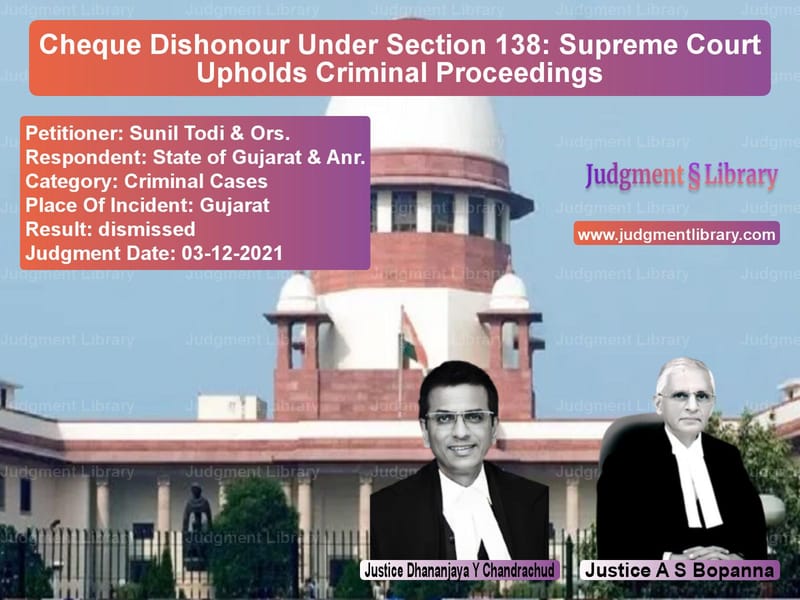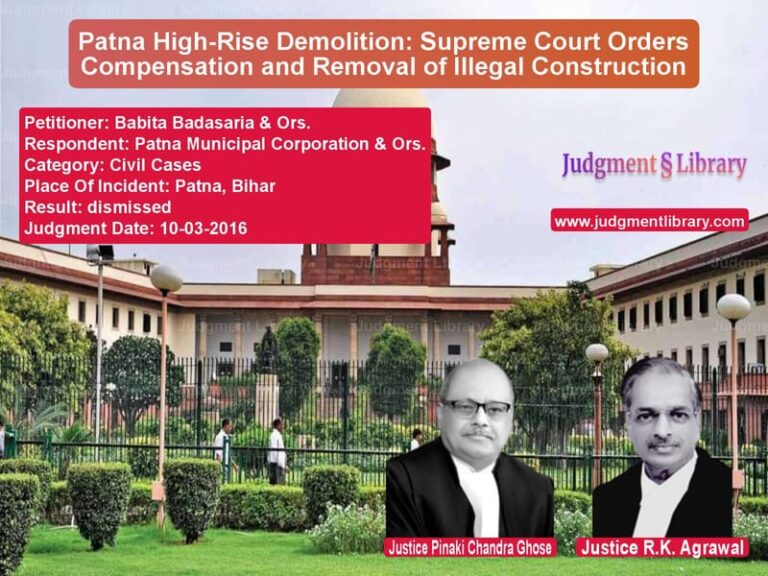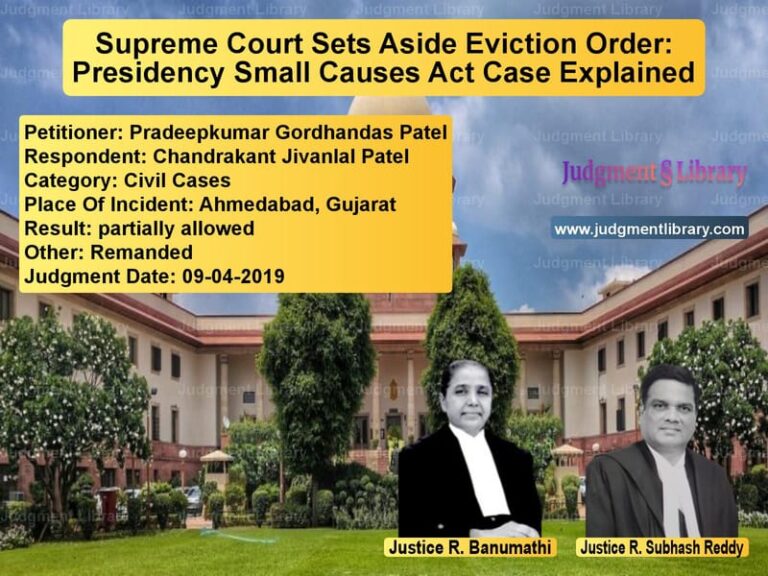Cheque Dishonour Under Section 138: Supreme Court Upholds Criminal Proceedings
In a crucial ruling, the Supreme Court upheld criminal proceedings against the appellants in a cheque dishonour case under Section 138 of the Negotiable Instruments Act (NI Act), 1881. The case revolved around the dishonour of a cheque amounting to Rs.2,67,84,000, issued by R.L. Steels & Energy Limited in favor of the complainant. The Court rejected the argument that the cheque was issued only as a security deposit and ruled that a legally enforceable debt existed at the time of its dishonour.
Background of the Case
The appellants, including four directors and the managing director of R.L. Steels & Energy Limited, issued a Letter of Intent on December 19, 2015, to the second respondent for the uninterrupted supply of power at their Aurangabad plant. It was agreed that payments would be made through a Letter of Credit (LC). However, the agreement was later modified to include security cheques covering 45 days of energy supply.
On June 30, 2016, the company issued two cheques for Rs.1,33,92,000 and Rs.2,67,84,000 as a security deposit, with the condition that they were to be deposited only upon confirmation. However, the company subsequently issued instructions to stop payment on these cheques. When the respondents presented the cheque dated August 28, 2017, it was dishonoured, leading to the initiation of criminal proceedings under Section 138 of the NI Act.
Legal Proceedings
The second respondent filed a complaint in the court of the Additional Chief Judicial Magistrate, Mundra, seeking a summons against the appellants. The Magistrate issued the summons, prompting the appellants to challenge the complaint under Section 482 of the Code of Criminal Procedure (CrPC) before the Gujarat High Court. The High Court dismissed their petitions, prompting an appeal to the Supreme Court.
Arguments of the Appellants
The appellants, represented by Senior Counsel Sidharth Luthra and Meenakshi Arora, argued that:
- The cheque was issued only as a security deposit, not for encashment.
- The power supply agreement (PSA) clearly stipulated that payments were to be made through an LC, making the cheque redundant.
- The complainant had already initiated a civil suit for recovery, making criminal proceedings unnecessary.
- The summons was issued without an inquiry under Section 202 CrPC, even though the accused resided outside the court’s jurisdiction.
- The complaint lacked specific allegations against the directors, making the invocation of vicarious liability unjustified.
Arguments of the Respondents
The respondents, represented by Senior Counsel Mohit Mathur and Rebecca John, contended that:
- The cheque was issued as security but became enforceable upon non-payment of electricity dues.
- LCs provided by the company were not in the required format, resulting in outstanding dues.
- There was no bar on invoking Section 138 even for cheques initially issued as security.
- The directors were responsible for the company’s financial decisions and therefore liable under Section 141 of the NI Act.
Supreme Court’s Ruling
The Supreme Court upheld the High Court’s decision, ruling that the complaint was maintainable under Section 138 of the NI Act. Key findings of the Court included:
- The cheque, even if initially issued as security, became enforceable due to the company’s failure to clear outstanding dues.
- The PSA’s payment mechanism did not override the legal consequences of cheque dishonour under the NI Act.
- The requirement of an inquiry under Section 202 CrPC was not absolute in every case.
- The directors could not escape liability merely by claiming that they were not in charge of the company’s financial decisions.
The Court extensively analyzed precedents, distinguishing between cheques issued for advance payments (which may not attract Section 138) and those issued as security for an existing liability. It ruled that once a liability arose, a cheque initially given as security could be presented for payment.
Read also: https://judgmentlibrary.com/supreme-court-grants-bail-in-uapa-case-emphasizes-right-to-speedy-trial/
Key Legal Precedents Cited
- Indus Airways Pvt. Ltd. v. Magnum Aviation Pvt. Ltd. – Held that cheques issued for advance payments may not constitute legally enforceable debt.
- Sampelly Satyanarayana Rao v. Indian Renewable Energy Development Agency Ltd. – Distinguished between security cheques and those linked to an existing liability.
- Sripati Singh v. State of Jharkhand – Ruled that a cheque issued as security could be enforceable if a liability arose later.
- SMS Pharmaceuticals v. Neeta Bhalla – Clarified the liability of directors under Section 141 of the NI Act.
Final Verdict
The Supreme Court dismissed the appeal, holding that the complaint under Section 138 was valid and that the accused directors had a case to answer in trial. It reiterated that security cheques could be enforced if a legally enforceable debt arose.
This judgment reaffirms the strict liability imposed under the NI Act and emphasizes that commercial entities must honor their financial commitments or face criminal prosecution.
Petitioner Name: Sunil Todi & Ors..Respondent Name: State of Gujarat & Anr..Judgment By: Justice Dhananjaya Y Chandrachud, Justice A S Bopanna.Place Of Incident: Gujarat.Judgment Date: 03-12-2021.
Don’t miss out on the full details! Download the complete judgment in PDF format below and gain valuable insights instantly!
Download Judgment: sunil-todi-&-ors.-vs-state-of-gujarat-&-a-supreme-court-of-india-judgment-dated-03-12-2021.pdf
Directly Download Judgment: Directly download this Judgment
See all petitions in Fraud and Forgery
See all petitions in Cheque Dishonour Cases
See all petitions in Judgment by Dhananjaya Y Chandrachud
See all petitions in Judgment by A. S. Bopanna
See all petitions in dismissed
See all petitions in supreme court of India judgments December 2021
See all petitions in 2021 judgments
See all posts in Criminal Cases Category
See all allowed petitions in Criminal Cases Category
See all Dismissed petitions in Criminal Cases Category
See all partially allowed petitions in Criminal Cases Category







